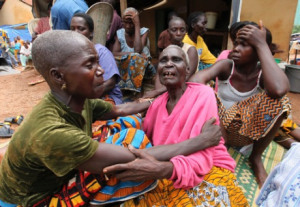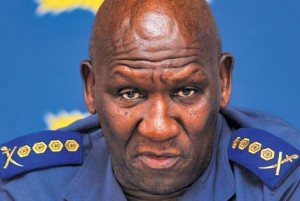By Vicki Turakhia
Impunity Watch Reporter, Africa
LILONGWE, Malawi – The Malawi President Banda will not be attending the African Union (AU) Summit this year. Earlier this month, President Banda banned the Sudanese President from entering Malawi for the African Union Summit due to war crimes.

The Sudanese President Omar al-Bashir was told by President Banda that he would be arrested if he entered Malawi. Malawi is a member state of the International Criminal Court (ICC) and would be required to arrest President al-Bashir for war crimes.
The ICC is holding Bashir responsible for over 300,000 deaths in Darfur. President Ian Khama of Botswana agrees with the ICC and has stated in reference to al-Bashir, “His failed leadership is like a cancer in his country.”
Instead, the AU meeting will be held in Ethiopia where the Malawian President has refused to attend. President Banda is focused on economic recovery for Malawi and believes any association with the Sudan President would only discourage international donors.
Around 40 percent of Malawi’s development funding comes from foreign aid. President Banda is supported by the Malawi government and Vice President Khumbo Kachali has stated that Malawi will not bow to the AU’s conditions for hosting the summit.
The ICC’s chief prosecutor has asked that aid be cut to all countries that fail to arrest the Sudanese president. Other countries such as Chad, Kenya, and Djibouti have been reported to the United Nations Security Council for not arresting Bashir despite their involvement with the ICC.
33 African States have a duty to arrest Bashir due to the ICC rules. The ICC prosecutor is also asking the United Nations Security Council to hold all 193 member states of the UN responsible for issuing warrants for the arrest of President Omar al-Bashir.
However, reactions are mixed about the Sudanese President and his involvement in war crimes. Some have accused the ICC with getting overly involved in African affairs, causing more disruptions than beneficial actions.
The AU meeting is set for July 15-16 in Addis Ababa, Ethiopia, the AU headquarters. This meeting will elect a new commission chair after the January meeting which resulted in a deadlock.
For further information, please see:
Reuters Africa – Malawi Leader Banda Will not Attend AU Summit – 15 June 2012
BBC News – Ethopia to Host African Union Summit After Omar al-Bashir Malawi row – 12 June 2012
New York Times – Malawi: Summit Meeting Declined – 9 June 2012
The Herald Online – Malawi Cancels AU Summit Hosting Over al-Bashir – 9 June 2012



